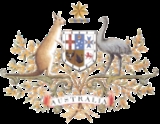
Australian Tape Manufacturers Association Ltd v Commonwealth
Encyclopedia
Australian Tape Manufacturers Association Ltd v Commonwealth (1993) 176 CLR
480 is a High Court of Australia
case that provides guidance as to the constitutional definition of a tax.
for the domestic and private taping of audio material not deemed to be illegal. The money was not paid to the Commonwealth, but to a private entity that distributed the funds to copyright owners.
from Air Caledonie
and ruled that the collecting body of a fee does not have to be a public body for the fee to be regarded as a tax. Therefore a levy collected by a private body dictated by a statute for public purposes gives the private body a public character. The decision also raised the notion of raising taxes for the public interest.
The decision also contained a strong dissent from the minority (Dawson, Toohey and McHugh JJ). They were critical of the dicta from Air Caledonie as it contained no principles, and no examples. They did not view the fee paid as tax because it was not paid into general government consolidated revenue (Section 81 of the Constitution requires taxes to be paid into consolidated revenue). The royalty imposed by the government was a special type of debt that did not satisfy the elements of taxation. McHugh J added that the term "public purpose" meant government purpose, and the fee imposed had no government purpose. The Commonwealth played a merely supervisory role.
Commonwealth Law Reports
The Commonwealth Law Reports are the authorised reports of decisions of the High Court of Australia. The CLR are published by the Lawbook Company, a division of Thomson Reuters...
480 is a High Court of Australia
High Court of Australia
The High Court of Australia is the supreme court in the Australian court hierarchy and the final court of appeal in Australia. It has both original and appellate jurisdiction, has the power of judicial review over laws passed by the Parliament of Australia and the parliaments of the States, and...
case that provides guidance as to the constitutional definition of a tax.
Facts
The Commonwealth made an amendment to the Copyright Act 1968 which was designed to compensate copyright ownersPrivate copying levy
A private copying levy is a government-mandated scheme in which a special tax or levy is charged on purchases of recordable media. Such taxes are in place in various countries and the income is typically allocated to the developers of "content"...
for the domestic and private taping of audio material not deemed to be illegal. The money was not paid to the Commonwealth, but to a private entity that distributed the funds to copyright owners.
Decision
The Court majority (Mason CJ, Brennan, Deane, Gaudron JJ) relied on dictaObiter dictum
Obiter dictum is Latin for a statement "said in passing". An obiter dictum is a remark or observation made by a judge that, although included in the body of the court's opinion, does not form a necessary part of the court's decision...
from Air Caledonie
Air Caledonie v Commonwealth
Air Caledonie v Commonwealth 165 CLR 462 is a High Court of Australia case that provides guidance as to the constitutional definition of a tax.-Facts:...
and ruled that the collecting body of a fee does not have to be a public body for the fee to be regarded as a tax. Therefore a levy collected by a private body dictated by a statute for public purposes gives the private body a public character. The decision also raised the notion of raising taxes for the public interest.
The decision also contained a strong dissent from the minority (Dawson, Toohey and McHugh JJ). They were critical of the dicta from Air Caledonie as it contained no principles, and no examples. They did not view the fee paid as tax because it was not paid into general government consolidated revenue (Section 81 of the Constitution requires taxes to be paid into consolidated revenue). The royalty imposed by the government was a special type of debt that did not satisfy the elements of taxation. McHugh J added that the term "public purpose" meant government purpose, and the fee imposed had no government purpose. The Commonwealth played a merely supervisory role.
See also
- Constitutional basis of taxation in AustraliaConstitutional basis of taxation in AustraliaThe constitutional basis of taxation in Australia is based on a group of powers in the Australian Constitution: sections 51, section 90, section 53, section 55, and section 96...
- Australian constitutional lawAustralian constitutional lawAustralian constitutional law is the area of the law of Australia relating to the interpretation and application of the Constitution of Australia. Several major doctrines of Australian constitutional law have developed....

